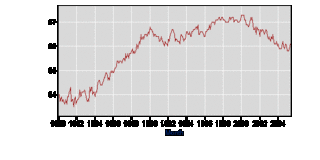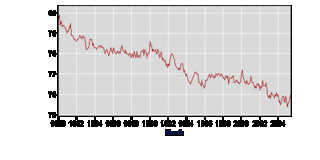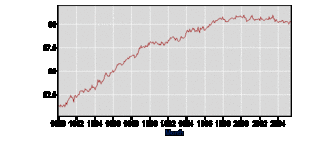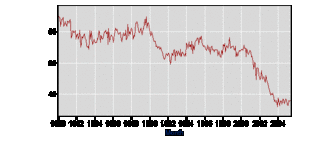The part I found most interesting was where he compared the labor participation rate, which was the crux of Krugman and DeLong's argument. Yes, it is in fact down slightly, although not as much as they would like you to think, but in which demographic was it down? Quoting from Scrivener:
labor force participation, age 20+
prior: 67.8% (unemployment rate 5.0%)
this: 67.8% (unemployment rate 4.5%)
Whoa! Surely when the bears talk of millions of people abandoning the search for work they give the impression that they are talking of adults supporting themselves and their families. But it's not so.The entire drop in the labor force participation rate has been among teenagers -- something I've never seen any bear note even once.
It is not the family breadwinners who are out of the labor force it is teenagers. So let's go to the charts and look at the trends. (click on the pictures to enlarge them)
Here is the overall participation rate, yes it is down slightly from October 1994.

But here it is for males over the age of 20.

And women over the age of 20.

So it looks like the men's rate, in keeping with a long term trend is down, while the increase in the female rate has basically leveled off, although compared to 1994 it is actually up, essentially offsetting the men's rate.
So where was the drop in participation rate? Well, as previously stated, in fact it is among teenagers:

Continuing a long term trend, the 16-19 participation rate is down significantly. Maybe they have decided to go to college or sit at home playing X-box, who knows, but they aren't out looking for jobs. You will never hear Krugman or DeLong even look into this, but it looks like the change in participation rate is caused by long term changes in demographics more than a "weak job market". There is nothing magical about a year 2000 67% participation rate, anymore than picking and choosing any other piece of data.